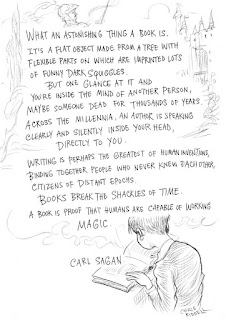“So, what brings you to this point in time?” my friend asks, today. He is
serious. “Well,” I say, a bit self-consciously, “the stepping stones provided
by others. After all, you yourself have been so instrumental in my life.” He looks
into, and then through me. In his eightieth year, he too has had his stepping-stones.
Persons, family, and friends. Like any of us, some have been leaning-posts,
some have been walking sticks, and some have ferried us across turbulent waters.
For them all, one can give gratitude. For them all, one can give grace. But not
all know each other’s grit.
Theresa Eldmann (a post-doctoral fellow in History, at the University of
South Africa) in a 2015 essay, ‘The lingering, unspoken pain of white youth who
fought for apartheid,’* writes: “White South African society lived in almost complete ignorance about the
scale of the war and the SADF’s strategies. Most conscripts said little about
what they experienced. This was partly because they had to sign the Official
Secrets Act upon joining. It was also the result of the ‘willed
ignorance’ of most white South Africans and the
draconian censorship laws of the time.”
Yes, Adam Broadford, in my ADMISSION, A Story Born of Africa,** endures a
particular set of inordinate ordeals. (Not just while he is in the army.) The
history of Africa is replete with terrible circumstances. There continues to be
ugly divisions, terrible atrocities, and the disease of warfare. So too for
other countries. So too for the individuals from those countries. And unless one
can relate, specifically, it can all seem so very otherworldly, so very remote,
so very far removed from our everyday realities that we most easily fill up a
gas tank, buy a bottle of wine, and go to enjoy yet another Christmas dinner.
But, (not now to dampen one’s spirits,) there are people out there, throughout
history, who deserve our continuing grace, ongoing gratitude, and even our own perpetual
grit in the face of daily life itself, not just on Remembrance Day.
Professor Eldmann, goes on: “Military
conscription was key in the apartheid state’s ‘total response’ to what was
construed as a ‘total onslaught’ by the perceived threats of communism and
African nationalism. … Over the 25 years that conscription was in place,
service increased from nine months to a total of 720 days including camps. … when
the SADF invaded Angola after its Portuguese colonial government collapsed.
This initiated 14 years of what became known as the ‘Border War’, consisting of
intense military and guerrilla warfare in northern Namibia and southern Angola.
… There were harsh consequences for
those who disobeyed the call-up. Their choices? A court martial and up to six
years in prison, exile in another country or going into hiding in South Africa.
… Conscientious objection (on religious rather than moral ethical or political
grounds) [only] became a legal option in the mid-1980s…. As the more complex
dimensions of our apartheid history begin to emerge, the healing and
transformative possibilities of stories about conscription surfacing in the
public domain should not be underestimated - especially as a way of making
sense of our deeply racially divided society.”
So then, what brings you or me, or an Adam Broadford to any
given point? Well, all along life’s way we have been supported and guided and
steered, (albeit sometimes will-he, nil-he,) by the society into which we’re
born. And we’ve reacted, responded, been inspired, and impelled. Now, as our
family and friends come to celebrate, on birthdays, on Christmas, on Festive
Occasions, or otherwise, can it be with deep gratitude, living grace, and ongoing
grit that we look them in the eyes? Might we be glad that we can still share such
‘alive’ time with them, at all? And in our hearts, those we love, do remain,
always.
Paul Smulders' CD, Missing in Action (paul@asesa.co.za)
*See: https://theconversation.com/the-lingering-unspoken-pain-of-white-youth-who-fought-for-apartheid-46218
**See: https://www.amazon.com/author/richardpentelbury
**See: https://www.amazon.com/author/richardpentelbury


There are too many of us who are willing to let others think for us, instead of accepting the responsibility of thinking for ourselves.
ReplyDeleteThe 'thumbs up' icon, to your comment, Justin Neway, indeed applies. Thanks!
DeleteIt never goes away.... I've never settled down. Antshelley@yahoo.co.uk
ReplyDeleteMay the past be accepted, and forgiveness for the self along with it, Antshelley@yahoo.co.uk; we live in the moment, now for now, in deeds.
Delete